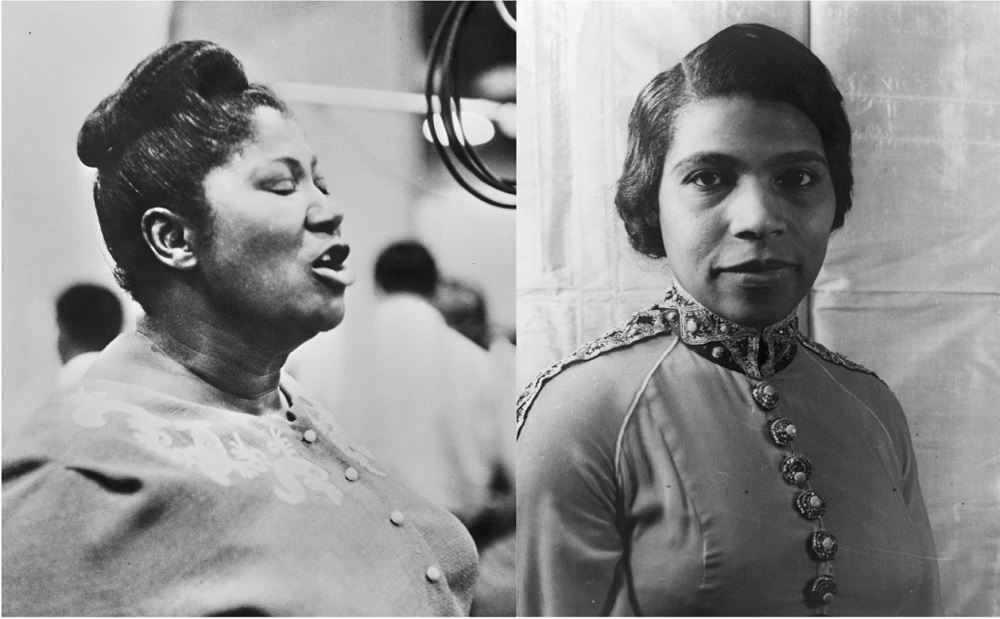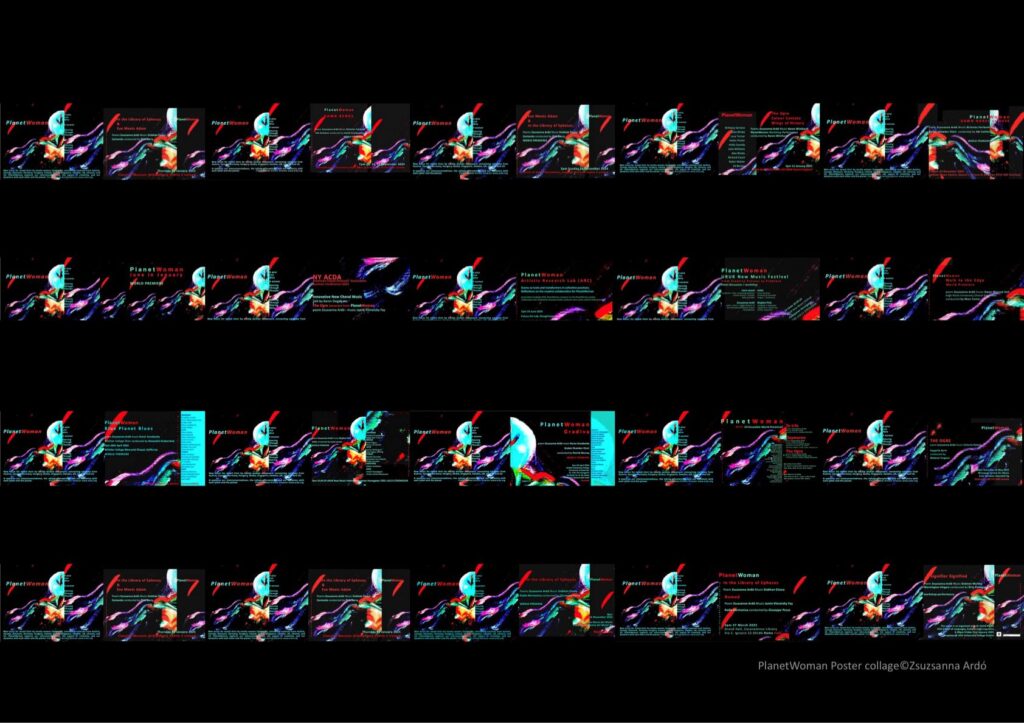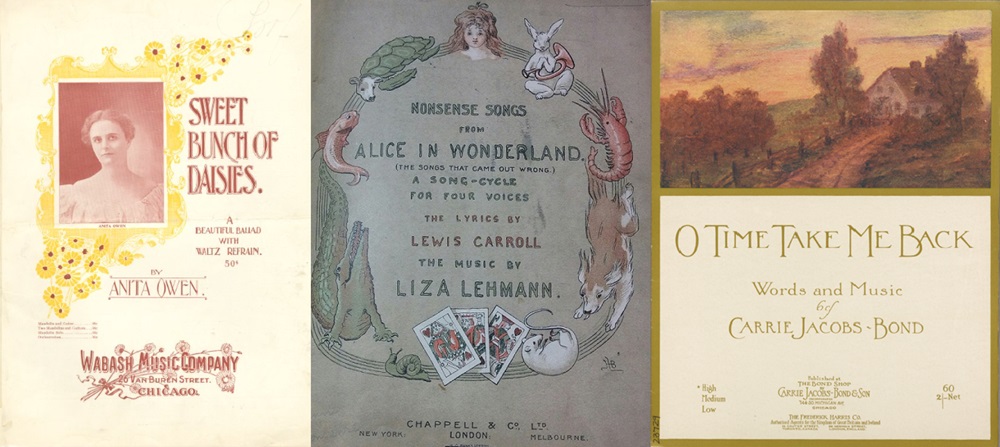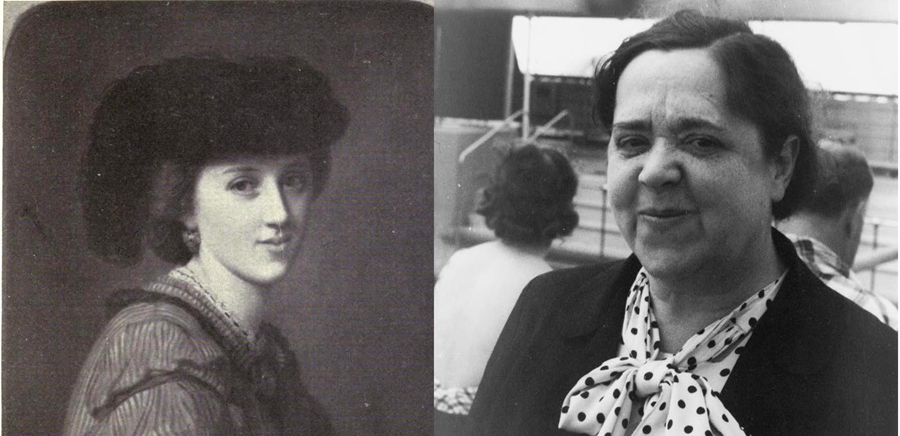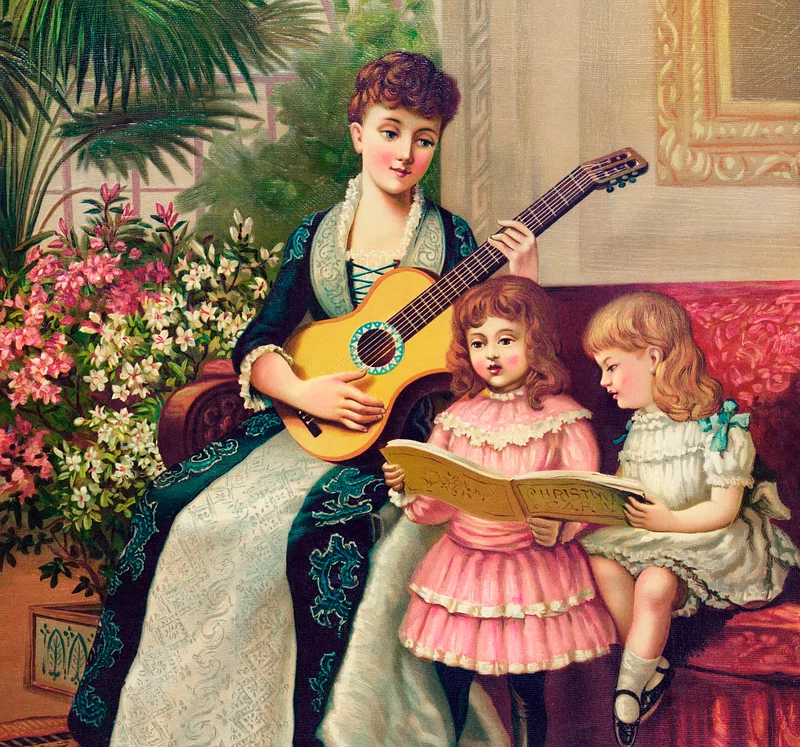In April, Stephen Rodgers was invited to guest host Thomas Hampson’s Song and Beyond, a weekly program including conversations about song with scholars, performers, and educators. After a one-on-one session with Thomas Hampson at the beginning of the month, the next two of these hour-long shows feature members of the Women’s Song Forum team.
First, Stephen talks with Marian Wilson Kimber and Christopher Reynolds about women’s songs in the late 19th and early 20th century. They focus on the huge number of songs written by women in this time period, on women’s clubs where much of this music was heard, and on the ways that women responded in song to the upheavals of both world wars. They spotlight one of the most popular songs of the 20th century: Carrie Jacobs-Bond’s “A Perfect Day.” And they discuss the practice of reciting poetry to music, an art form that emerged in the 1850s and was remarkably popular, especially in the United States, until it fell into obscurity during the 20th century. Marian is now reviving this practice as part of the duo Red Vespa, together with her collaborator, pianist Natalie Landowski.
You can watch the entire conversation below. A recording of Carrie Jacobs-Bond’s “A Perfect Day” by Webster Booth appears at 40:00. Marian’s performance of Phyllis Fergus’s “A Summer Idyll” appears at 54:55.
Second, Stephen converses with Carol Oja and Mark Burford about two of the most remarkable singers of the 20th century: the classical contralto Marian Anderson and the gospel singer Mahalia Jackson. (Mark and Carol have each written WSF posts about Marian Anderson.) They explore the many obstacles these women faced and the different ways they faced them, and talk about what made their voices so extraordinary. Finally, they consider what these two women have to teach us today—about the ongoing challenges for Black musicians, and about the need to continue telling the stories of these two pioneering performers.
You can watch the entire conversation below. A recording of Marian Anderson singing Harry Burleigh’s arrangement of the spiritual “Deep River” appears at 18:03, and part of her performance of Schubert’s “Erklönig” appears at 25:45. Mahalia Jackson’s performance of Doris Akers’s “Closer to Me” appears at 40:55.
The banner photo of Mahalia Jackson (left) is by Fotograaf Onbekend / Anefo (1971); it is licensed under Creative Commons via Wikimedia Commons.
The photo of Marian Anderson (right) is by Carl Van Vechten (1940); it is licensed under public domain via PICRYL.


